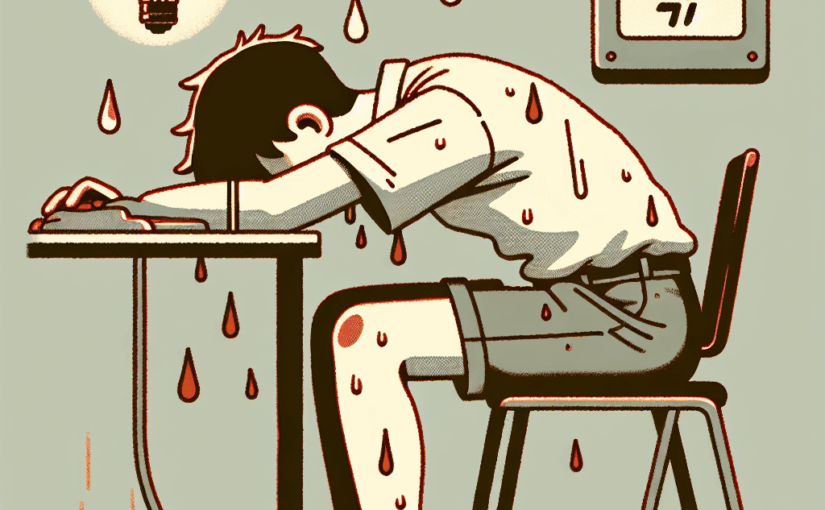Understanding Parental Burnout
Feeling fatigued and overwhelmed? If you’re a parent, you might be experiencing parental burnout, a state of emotional, physical, and mental exhaustion caused by the demands of parenting. It’s no wonder that more and more parents are reporting feelings of isolation and fatigue. You’re not alone in this struggle, and acknowledging parental burnout is the first step toward taking action. This phenomenon isn’t just a momentary phase; it can significantly impact your well-being, relationships, and day-to-day functioning. Understanding the symptoms and causes of this burnout can help you find effective strategies to alleviate your stress and foster a healthier home environment.
Signs and Symptoms of Parental Burnout
Recognising parental burnout is crucial for effective management. Here are some common signs and symptoms that may indicate you are experiencing this overwhelming state:
1. Chronic fatigue: Feeling persistently tired, regardless of how much sleep you get, is a hallmark of burnout.
2. Irritability: You may find yourself more easily frustrated or annoyed by your children’s behaviour or daily challenges.
3. Emotional detachment: A sense of disconnect from your children or feeling as though you are just going through the motions is common.
4. Loss of interest: Activities you once enjoyed, including spending time with your family, might feel less appealing.
5. Difficulty concentrating: You may struggle with focus and decision-making, which can exacerbate feelings of inadequacy.
Studies suggest that around 30% of parents report experiencing some level of burnout, highlighting the need for open discussions about this very real phenomenon. Remember, acknowledging these feelings is the first step to recovery and improvement.
Causes of Parental Burnout
Parental burnout can arise from various sources, making it crucial to identify what contributes to your feelings of overwhelm. Some common causes include:
1. High expectations: Society often places immense pressure on parents to raise perfect children, juggling work, family, and personal aspirations. The unrealistic pursuit of perfection can lead to disappointment and stress.
2. Lack of support: A weak support system can leave parents feeling isolated, making the challenges of parenting even more daunting. Without friends, family, or community resources, you may feel as if you are navigating parenthood alone.
3. Sleep deprivation: The demands of raising young children can disrupt your sleep, leading to exhaustion that compounds feelings of burnout.
4. Unequal distribution of responsibilities: In many families, one parent may take on a disproportionate share of childcare and household duties, leading to resentment and fatigue.
5. Technology overload: The constant connectivity of modern life can amplify stress levels, as parents feel pressure to always be “on” for their children and work.
Understanding these contributing factors is essential for finding effective strategies to combat parental burnout successfully.
Strategies to Overcome Parental Burnout
While it may feel overwhelming, there are numerous strategies parents can implement to combat parental burnout. Here are some effective methods:
1. Prioritise self-care: Set aside time for yourself, even if it’s just a short daily ritual. This could be as simple as reading a book, meditating, or enjoying a hot bath.
2. Seek support: Don’t hesitate to lean on your partner, family, or friends. Joining parenting groups or community resources can provide emotional support and practical solutions.
3. Set realistic goals: Give yourself permission to be imperfect. It’s okay if the laundry doesn’t get done every day or if dinner isn’t a gourmet meal.
4. Create a schedule: A structured routine can help distribute responsibilities evenly among family members, ensuring that no single parent feels overwhelmed.
5. Disconnect to reconnect: Plan regular family activities that allow everyone to engage without distractions from screens.
Research shows that even small changes can have a significant impact on reducing feelings of burnout. For more on strategies to address burnout, consider resources like [Talk to Koko](https://www.talktokoko.com).
Embracing these strategies can lead to a more balanced and fulfilling family life, helping alleviate parental burnout.
Remember, you are not alone in this journey. Many parents experience this challenge, and recognising it is the key to forging a path toward better mental health and family harmony. By actively addressing parental burnout, you can create a more sustainable and joyous parenting experience.
As you take these first steps towards managing your stress, remember that it’s perfectly alright to seek help whenever you need it. Be proactive about your well-being, and consider reaching out for support today.
















